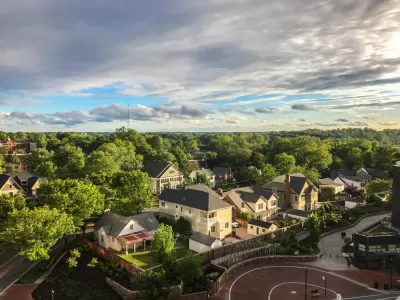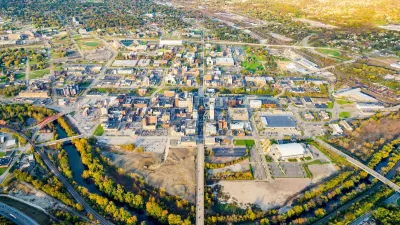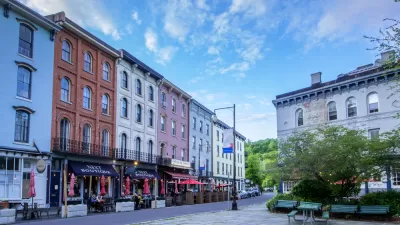It’s not "luxury" factors that make housing in Washington, D.C., extremely expensive.

"High housing costs [in the Washington, D.C., area] have surprisingly little to do with marble countertops and things that go inside buildings. They have much more to do with what’s outside the building: land," reports Ally Schweitzer.
Land in the area averages $1.2 million an acre, and this is the main factor driving up housing costs in the region. And zoning is largely behind the housing shortage that has made land so valuable. "In the D.C. region, vast swaths of residential areas are zoned exclusively for single-family homes, the most space-intensive and costly form of housing," notes Schweitzer.
Construction costs have also increased and added to the rising housing costs. But people are willing to pay these prices, making affordable housing even more important for the region. "Affluent singles and couples drive a lot of housing demand in the region, especially in D.C., and they compete for homes that could otherwise go to lower-income families," says Schweitzer.
FULL STORY: ‘Luxury’ Amenities Aren’t Why Housing Is So Expensive In The D.C. Area

Study: Maui’s Plan to Convert Vacation Rentals to Long-Term Housing Could Cause Nearly $1 Billion Economic Loss
The plan would reduce visitor accommodation by 25,% resulting in 1,900 jobs lost.

North Texas Transit Leaders Tout Benefits of TOD for Growing Region
At a summit focused on transit-oriented development, policymakers discussed how North Texas’ expanded light rail system can serve as a tool for economic growth.

Why Should We Subsidize Public Transportation?
Many public transit agencies face financial stress due to rising costs, declining fare revenue, and declining subsidies. Transit advocates must provide a strong business case for increasing public transit funding.

How to Make US Trains Faster
Changes to boarding platforms and a switch to electric trains could improve U.S. passenger rail service without the added cost of high-speed rail.

Columbia’s Revitalized ‘Loop’ Is a Hub for Local Entrepreneurs
A focus on small businesses is helping a commercial corridor in Columbia, Missouri thrive.

Invasive Insect Threatens Minnesota’s Ash Forests
The Emerald Ash Borer is a rapidly spreading invasive pest threatening Minnesota’s ash trees, and homeowners are encouraged to plant diverse replacement species, avoid moving ash firewood, and monitor for signs of infestation.
Urban Design for Planners 1: Software Tools
This six-course series explores essential urban design concepts using open source software and equips planners with the tools they need to participate fully in the urban design process.
Planning for Universal Design
Learn the tools for implementing Universal Design in planning regulations.
City of Santa Clarita
Ascent Environmental
Institute for Housing and Urban Development Studies (IHS)
City of Grandview
Harvard GSD Executive Education
Toledo-Lucas County Plan Commissions
Salt Lake City
NYU Wagner Graduate School of Public Service





























